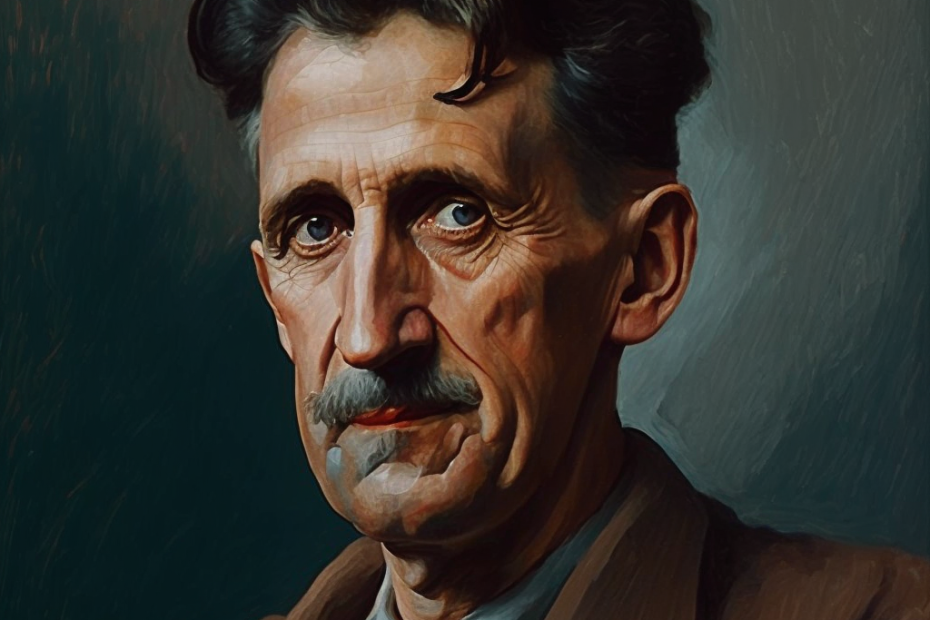Books have played a vital role in shaping our societies, but they have also been a source of censorship and political controversy. Throughout history, several books have been banned in the United Kingdom for political reasons. These decisions have been met with mixed reactions, and have sparked important discussions about freedom of speech and censorship. In this blog post, we will delve into the history of book banning in the UK, examining some of the most notable books that have been banned for political reasons, and the reasons behind their ban. We will also consider the ongoing relevance of these decisions in today’s society, and the impact they have on our understanding of the power of literature and the importance of protecting freedom of expression.
Article Contents
Animal Farm by George Orwell
George Orwell’s “Animal Farm” is a classic novel that has stood the test of time, but it is also a book that has been met with censorship. The novel, which is a political allegory about the Russian Revolution and the rise of Stalinism, was censored in several countries when it was first published in 1945. The reasons for this censorship were varied, but they all related to the book’s political themes and its criticism of totalitarianism. In this article, we will explore the history of censorship surrounding “Animal Farm” and the reasons behind it. We will also discuss the impact of this censorship on the book’s reception and its legacy, and how it relates to censorship and freedom of speech in today’s society.
The Censorship of ‘Animal Farm’: A Look into the reasons behind the ban
George Orwell’s “Animal Farm” is a literary classic that has stood the test of time, but it is also a book that has been met with censorship. The novel, which is a political allegory about the Russian Revolution and the rise of Stalinism, was censored in several countries when it was first published in 1945. In the United Kingdom, the book was not banned outright, but it was subject to censorship, which had the effect of limiting its distribution and impact. The reasons for this censorship were varied, but they all related to the book’s political themes and its criticism of totalitarianism. In this article, we will take a closer look at the censorship of “Animal Farm” in Great Britain, exploring the reasons behind the censorship and the impact it had on the book’s reception and legacy.
A brief overview of the censorship of ‘Animal Farm’ in the United Kingdom
“Animal Farm” was first published in the United Kingdom in 1945, shortly after the end of World War II. The novel was an immediate success, but it also sparked controversy due to its political themes and its criticism of totalitarianism. The book was seen as a thinly veiled attack on Stalinism and the Soviet Union, which was still an ally of Great Britain at the time.
In response to the book’s publication, the British government and intelligence agencies took steps to limit its distribution and impact. The book was not banned outright, but it was subject to censorship. This censorship was carried out in a variety of ways, including:
- Restricting access to the book: “Animal Farm” was not widely available in bookstores or libraries, making it difficult for the public to access the book.
- Discouraging reviews and coverage: The British media was discouraged from reviewing or covering the book, which limited its exposure and impact.
- Suppressing public discussion: Efforts were made to suppress public discussion of the book, which included the suppression of letters to the editor and the censorship of public lectures about the book.
These efforts to censor “Animal Farm” had a significant impact on the book’s reception and legacy in the UK. The book was not widely read or discussed, and its political message was not widely understood or appreciated. This censorship of “Animal Farm” in the United Kingdom is an example of how censorship can have a chilling effect on freedom of speech and expression.
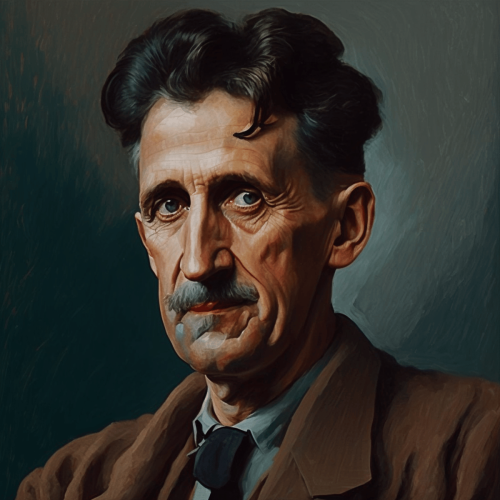
The historical context of the censorship of “Animal Farm”
The British censorship of “Animal Farm” must be understood in the context of the historical events that were taking place at the time of the book’s publication. The novel was first published in 1945, shortly after the end of World War II and at the beginning of the Cold War.
During this period, the Soviet Union was still considered an ally of the United Kingdom, and the British government was keen to maintain good relations with the Soviet government. The book’s portrayal of the Russian Revolution and the rise of Stalinism was seen as a direct criticism of the Soviet Union and its government.
Additionally, the novel’s themes of totalitarianism and the dangers of a concentration of power in the hands of a single leader were also seen as a criticism of the British government’s own policies, as well as the policies of the United States and other Western countries.
In this historical context, the British government and intelligence agencies saw the book as a threat to their foreign policy objectives and to their relations with the Soviet Union. Censorship was seen as a means of limiting the book’s impact and preventing it from influencing public opinion.
It’s worth mentioning that the novel was also banned in the Soviet Union and other communist countries for similar reasons.
By understanding the historical context in which “Animal Farm” was censored, we can gain a better understanding of the reasons behind the censorship and the impact it had on the book’s reception and legacy.
The rise of Stalinism and the Cold War
The rise of Stalinism was a major factor in the censorship of “Animal Farm” in the United Kingdom. Stalinism is a term used to describe the political and economic system that developed in the Soviet Union under the leadership of Joseph Stalin. Stalin came to power in the Soviet Union in the late 1920s and implemented a series of policies and reforms that aimed to rapidly industrialize and modernize the country.
These policies included the collectivization of agriculture, the forced relocation of millions of people, and the widespread use of repression and terror to control the population. Stalin’s policies led to widespread suffering and the deaths of millions of people. The rise of Stalinism was a major issue in the international political climate in the 1930s and 1940s.
The Cold War was another major factor in the censorship of “Animal Farm”. The Cold War was a state of political and military tension between the Western powers, led by the United States, and the Eastern powers, led by the Soviet Union, that lasted from the end of World War II until the early 1990s. The two sides engaged in a series of proxy wars, espionage, and political and economic competition, but never came to a direct military confrontation.
During the Cold War, the Soviet Union was seen as a major threat to the West, and the British government was keen to maintain good relations with the Soviet government. The book’s portrayal of the Russian Revolution and the rise of Stalinism was seen as a direct criticism of the Soviet Union and its government. Additionally, the novel’s themes of totalitarianism and the dangers of a concentration of power in the hands of a single leader were also seen as a criticism of the Western countries’ policies.
The political climate in the United Kingdom at the time of the publication of ‘Animals Farm’
The censorship of “Animal Farm” in the United Kingdom must also be understood in the context of the political climate in the United Kingdom at the time of the book’s publication. In the years following World War II, the United Kingdom was undergoing a period of significant political and social change. The country was still recovering from the effects of the war, and there were ongoing debates about how to rebuild the economy, create a more equitable society, and address ongoing issues such as poverty and inequality.
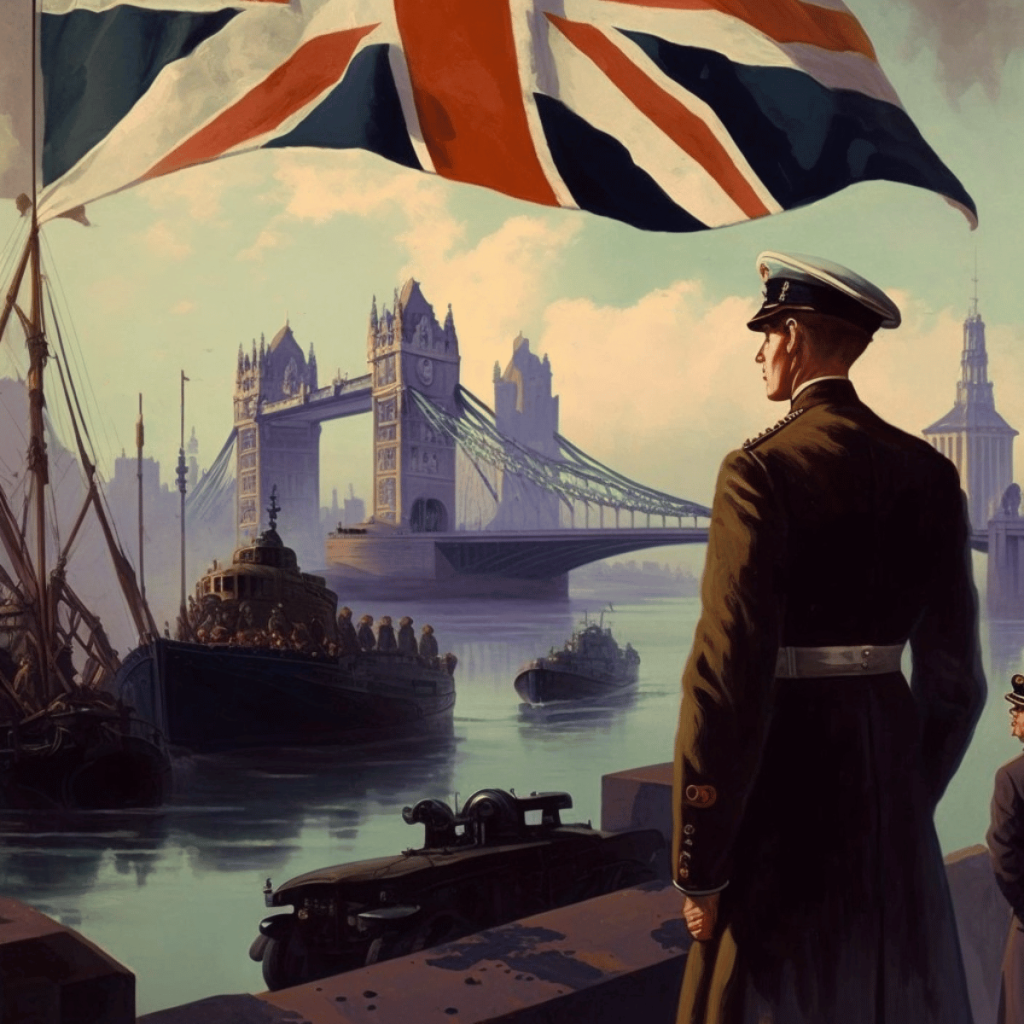
At the same time, there was a growing sense of disillusionment with the political establishment. Many people were critical of the government’s handling of the war and the economic policies that had been implemented in the years following the war. There was also a growing sense of unease about the rise of totalitarianism and the dangers of a concentration of power in the hands of a single leader.
In this political climate, “Animal Farm” was seen as a powerful critique of the political establishment and the dangers of totalitarianism. The book’s themes of political corruption, the abuse of power, and the dangers of a concentration of power in the hands of a single leader resonated with many people in the United Kingdom.
However, the government saw the book as a threat to their foreign policy objectives and to their relations with the Soviet Union, as well as a criticism of their own policies. The British government and intelligence agencies sought to limit the book’s impact and prevent it from influencing public opinion. This censorship of “Animal Farm” is an example of how censorship can have a chilling effect on freedom of speech and expression.
Political themes
The novel as a political allegory
One of the main reasons for the censorship of “Animal Farm” in the United Kingdom is its political themes, specifically, the novel as a political allegory. A political allegory is a story that uses symbolism to comment on political issues or events. “Animal Farm” is a political allegory that uses the story of a group of farm animals who rebel against their human farmer, to comment on the Russian Revolution and the rise of Stalinism.
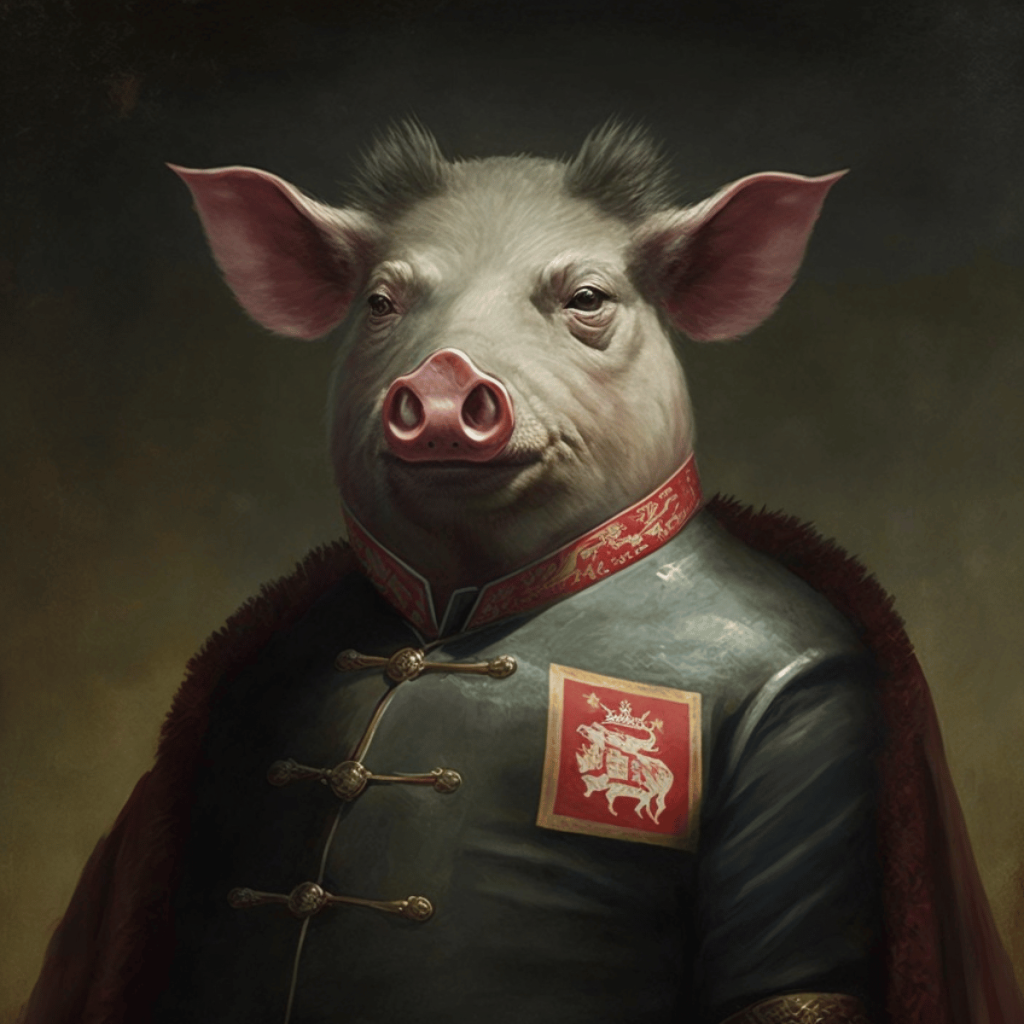
“all animals are equal but some animals are more equal than others“
The novel tells the story of a group of farm animals who overthrow their human farmer and take control of the farm. They establish a new society, where all animals are equal and work together for the common good. Initially, the new society is successful, but over time, the pigs, who have taken on the role of leaders, become more and more corrupt and oppressive. Eventually, the farm becomes a dictatorship, and the other animals are reduced to a state of poverty and suffering.
The novel’s political allegory is clear: the farm represents the Soviet Union, the human farmer represents the Tsar, the pigs represent the Communist Party and Stalin, and the other animals represent the general population. The novel is a powerful critique of the Russian Revolution and the rise of Stalinism, and it exposes the corruption and oppression that characterized the Soviet government under Stalin.
The novel’s political themes and its criticism of totalitarianism and Stalinism were major factors in the censorship of “Animal Farm”. The British government and intelligence agencies saw the book as a threat to their foreign policy objectives and to their relations with the Soviet Union. They sought to limit the book’s impact and prevent it from influencing public opinion.
Criticism of totalitarianism and Stalinism
In addition to its political allegory, “Animal Farm” is also a powerful critique of totalitarianism and Stalinism. Totalitarianism is a political system in which the government has complete control over all aspects of society and the individual’s life, and Stalinism is the specific form of totalitarianism that developed in the Soviet Union under the leadership of Joseph Stalin.
The novel’s portrayal of the pigs’ rise to power and their eventual dictatorship over the other animals, highlights the dangers of a concentration of power in the hands of a single leader and the corrupting influence of unchecked power. It also exposes the repression, censorship, and propaganda that are hallmarks of totalitarian regimes.
The novel also critiques the Stalinism’s forced collectivization of agriculture and the forced relocation of millions of people, which led to widespread suffering and the deaths of millions of people. The book’s portrayal of the exploitation of the working class, the suppression of dissent, and the abuse of power are all elements of Stalinism.
The novel’s criticism of totalitarianism and Stalinism was a major factor in the censorship of “Animal Farm” in the United Kingdom. The British government and intelligence agencies saw the book as a direct criticism of the Soviet Union and its government and sought to limit its impact and prevent it from influencing public opinion.
The novel’s criticism of totalitarianism and Stalinism are still relevant today and continue to resonate with readers all around the world, making it a literary classic that should be read and studied today and in the future.
The book’s impact on the British public’s perception of the Soviet Union
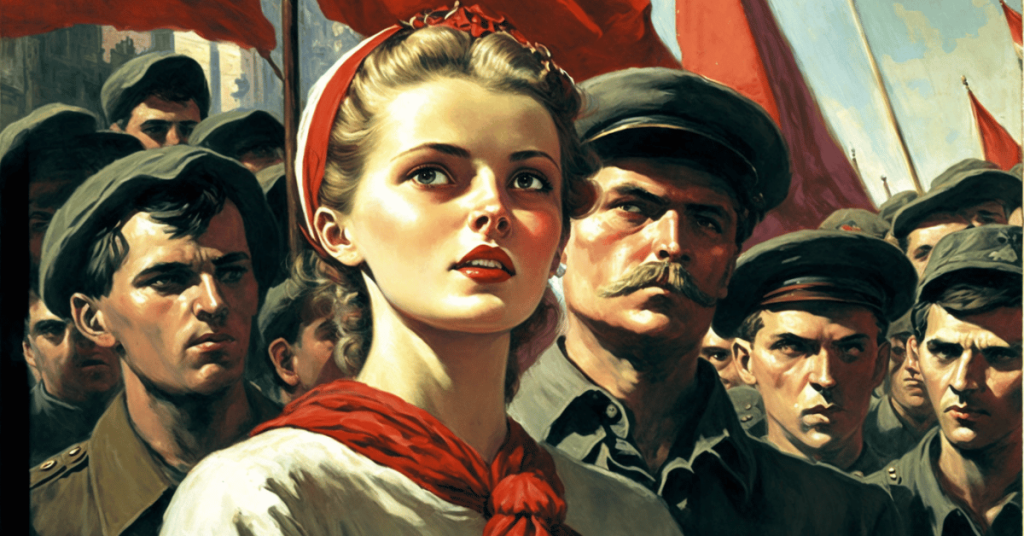
The censorship of “Animal Farm” had a significant impact on the British public’s perception of the Soviet Union, the book’s portrayal of the Russian Revolution and the rise of Stalinism was a direct criticism of the Soviet Union and its government, and it exposed the corruption and oppression that characterized the Soviet government under Stalin.
If the book had been widely read and discussed, it would have given the British public a more critical understanding of the Soviet Union and Stalinism. However, due to censorship, the book’s political message was not widely understood or appreciated by the public, and the British government’s efforts to maintain good relations with the Soviet Union were not challenged.
The censorship of “Animal Farm” had a chilling effect on freedom of speech and expression, and it prevented the British public from gaining a more nuanced and critical understanding of the Soviet Union and Stalinism. The impact of this censorship continues to be felt today, as the book’s political message remains relevant and continues to resonate with readers all around the world.
Censorship in action
How the book was censored in the United Kingdom
The censorship of “Animal Farm” in the United Kingdom was carried out in a variety of ways, including:
- Restricting access to the book: The book was not widely available in bookstores or libraries, making it difficult for the public to access it.
- Discouraging reviews and coverage: The British media was discouraged from reviewing or covering the book, which limited its exposure and impact.
- Suppressing public discussion: Efforts were made to suppress public discussion of the book, which included the suppression of letters to the editor and the censorship of public lectures about the book.
- Government and intelligence agencies: The government and intelligence agencies were involved in censoring the book. They had access to different means of suppressing the distribution and impact of the book, such as pressuring publishers and distributors not to publish or sell the book, and also using surveillance and intimidation tactics to silence those who were discussing or promoting the book.
- Propaganda: The government also used propaganda to discredit the book and its author, portraying them as unpatriotic or subversive.
These efforts to censor “Animal Farm” were not always overt or official. The censorship was often carried out through a combination of subtle pressure, intimidation, and manipulation. This made it difficult to document or prove, but it had a significant impact on the book’s distribution and impact.
Impact on the book’s reception and sales
The censorship of “Animal Farm” in the United Kingdom significantly impacted the book’s reception and sales. The efforts to limit the book’s distribution and impact, made it difficult for the public to access the book, and also hindered its exposure and impact.
Due to censorship, the book was not widely reviewed or covered in the British media, which limited its exposure and impact. The public discussion of the book was also suppressed, which limited the ability of the book to generate buzz and interest.
As a result of these efforts, the book’s sales were affected, it did not become the commercial success it could have been, and it did not reach the wide audience that it deserved.
The censorship also had an impact on the book’s reception, as the public’s understanding of the book’s political message was limited by the censorship, it was not widely understood or appreciated by the public.
It’s worth mentioning that, despite the censorship, the book was not completely forgotten, it was still read and discussed by some people and it managed to survive, and eventually, it was recognized as a literary classic, but the censorship had a significant impact on the book’s reception and sales during the time it was published.
The censorship of “Animal Farm” in the United Kingdom serves as a reminder of the power of censorship to limit the distribution and impact of a book and the dangers of censorship to freedom of speech and expression.
Conclusion
Summary of the reasons for the censorship of “Animal Farm”
In summary, the censorship of “Animal Farm” in the United Kingdom was motivated by a number of factors, including:
- The book’s political allegory: The book’s portrayal of the Russian Revolution and the rise of Stalinism was seen as a direct criticism of the Soviet Union and its government, which was a threat to the British government’s foreign policy objectives and relations with the Soviet Union.
- The book’s criticism of totalitarianism and Stalinism: The book’s portrayal of the pigs’ rise to power and their eventual dictatorship over the other animals, highlighted the dangers of a concentration of power in the hands of a single leader, and the corrupting influence of unchecked power. It also exposed the repression, censorship, and propaganda that are hallmarks of totalitarian regimes.
- Historical context: The book was published during the Cold War, when the Soviet Union was seen as a major threat to the West, the British government and intelligence agencies sought to maintain good relations with the Soviet government and saw the book as a threat to their foreign policy objectives.
- Political climate: The book was published during a period of significant political and social change in the United Kingdom, there was a growing sense of disillusionment with the political establishment and a growing sense of unease about the rise of totalitarianism. The book’s themes of political corruption, the abuse of power, and the dangers of a concentration of power in the hands of a single leader resonated with many people in Great Britain.
- The role of the British government and intelligence agencies: The government and intelligence agencies played a significant role in the censorship of the book, they saw it as a threat to their foreign policy objectives and relations with the Soviet Union, and they took steps to limit its distribution and impact.
These factors combined to make “Animal Farm” a target for censorship, and the efforts to limit the book’s distribution and impact significantly impacted the book’s reception and sales.
The ongoing relevance of censorship in today’s society
The censorship of “Animal Farm” serves as a reminder of the ongoing relevance of censorship in today’s society. Censorship continues to be a powerful tool for governments and other organizations to control the flow of information and limit the exposure and impact of ideas that are seen as a threat to their interests or ideologies.
Today, censorship takes many forms, from internet censorship, to the suppression of free speech, to the manipulation of public opinion through disinformation and propaganda. In many countries, censorship is on the rise, and freedom of speech and expression is under threat.
The censorship of “Animal Farm” also serves as a reminder of the dangers of censorship to freedom of speech and expression. Censorship can have a chilling effect on the ability of individuals and groups to express themselves freely and can prevent the public from gaining a more nuanced and critical understanding of important issues.
It is important to recognize that censorship is not a thing of the past, it’s still happening today, and it’s important to be aware of the ongoing efforts to control the flow of information and limit freedom of speech and expression.
In conclusion, the censorship of “Animal Farm” in the United Kingdom serves as a cautionary tale about the power of censorship to limit the distribution and impact of a book and the dangers of censorship to freedom of speech and expression. It’s also a reminder of the importance of protecting our freedom of expression and the need to be vigilant against censorship in today’s society.
The importance of protecting freedom of speech and expression.
The censorship of “Animal Farm” in the United Kingdom serves as a reminder of the importance of protecting freedom of speech and expression. Freedom of speech and expression are fundamental human rights, and they are essential for the functioning of a healthy and democratic society.
Freedom of speech and expression allows individuals and groups to express themselves freely and to share their ideas and opinions with others. It also allows for a free and open exchange of ideas, which is essential for the development of new ideas, the identification of problems, and the generation of solutions.
In addition, freedom of speech and expression also play a crucial role in holding those in power accountable. It allows for a free and open press, which is essential for the functioning of a healthy democracy and for the protection of other human rights.
However, freedom of speech and expression are not always protected, and they are often threatened by censorship, surveillance, and other forms of repression. The censorship of “Animal Farm” in the United Kingdom serves as a reminder of the dangers of censorship to freedom of speech and expression, and it highlights the importance of protecting these rights.
In conclusion, the censorship of “Animal Farm” in the United Kingdom serves as a reminder of the importance of protecting freedom of speech and expression. It’s essential for the functioning of a healthy and democratic society and for the protection of other human rights. It’s important to be vigilant against censorship and to work to protect freedom of speech and expression for all people
Other banned books in the United Kingdom
“Areopagitica” by John Milton: A treatise on free speech (published in 1644)
“Areopagitica” by John Milton is a notable example of a book that was banned in the United Kingdom. Written and published in 1644, this treatise on free speech was banned by the government of the time for its criticism of censorship. The book, which is considered one of Milton’s most important works, is a powerful and eloquent defense of freedom of expression and the right to freely publish and read books.
The title “Areopagitica” refers to a speech given by the Athenian orator Isocrates in the 5th century BC, in which he advocated for freedom of speech and the right to a fair trial. Similarly, Milton’s “Areopagitica” is a plea for freedom of speech and the right to publish and read books without government censorship. The book critiques the Licensing Order of 1643, which required all books to be approved by government officials before they could be published.
Milton’s “Areopagitica” is a powerful and influential work that continues to be relevant today. It’s a book that not only advocates for freedom of speech and the rights of authors, but also highlights the dangers of censorship and the importance of an open and free society. The banning of “Areopagitica” by the government in the United Kingdom is a reminder of the power of books to challenge the status quo and inspire change.
A brief biography of Milton
John Milton was an English poet, polemicist, and civil servant for the Commonwealth of England. He was born in London in 1608, and was educated at Christ’s College, Cambridge. After completing his studies, Milton devoted himself to writing and literary pursuits. He is considered one of the greatest poets in the English language and one of the key figures in the history of English literature.
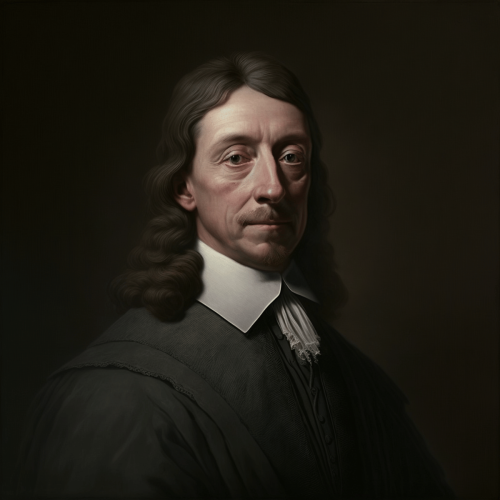
Milton is best known for his epic poem “Paradise Lost,” which was published in 1667. The poem tells the story of Adam and Eve’s fall from grace and their expulsion from the Garden of Eden. It is widely considered one of the greatest works of English literature and is notable for its grand and elevated style, as well as its exploration of religious and philosophical themes.
Milton also wrote other notable works such as “Lycidas” and “Sonnet XIX” which are considered masterpieces of English poetry. He also wrote prose works including “The Doctrine and Discipline of Divorce” and “Areopagitica” where he addresses themes such as freedom of speech and censorship, and the right to publish and read books without government interference.
Throughout his literary career, Milton tackled a wide range of themes, including religious and philosophical ideas, the nature of good and evil, and the nature of God and humanity. His works are known for their elevated style, rich imagery, and complex themes, and continue to be studied and admired to this day.
The Context of “Areopagitica”
The historical context of the time period when “Areopagitica” was written
“Areopagitica” was written and published in 1644, during a time of significant political and social upheaval in the United Kingdom. The country was in the midst of the English Civil War, which lasted from 1642 to 1651, and pitted the forces of the King against those of the Parliament.
During this time, England was divided between those who supported the King and those who supported the Parliament. The King’s supporters, known as Royalists, sought to maintain the traditional power of the monarchy, while the Parliament’s supporters, known as Roundheads, sought to increase the power of the Parliament and limit the power of the King.
The Civil War had a profound impact on English society, and led to significant changes in the country’s political and social structure. It also had a significant impact on the cultural and intellectual life of the country, as many writers and thinkers were forced to take sides and express their views on the conflict.
In this context, Milton’s “Areopagitica” can be seen as a reflection on the political and social climate of the time, and as a response to the censorship and repression that was taking place under the government of the time. The book serves as a powerful plea for freedom of speech and the right to publish and read books without government interference, in an environment where censorship and repression were becoming increasingly common.
Overview of the political and social climate in the United Kingdom during the mid-17th century
The political and social climate in the United Kingdom during the mid-17th century was one of significant change and upheaval. The English Civil War, which began in 1642 and lasted until 1651, was a major turning point in the country’s history, and had a profound impact on the political, social, and cultural life of the country.
Politically, the war saw the rise of the Parliament as a major power in the country, at the expense of the monarchy. The war also had a significant impact on the social structure of the country, as it led to the rise of the middle class and the decline of the nobility.
In addition to the Civil War, the mid-17th century also saw a number of other significant social and cultural changes. The country was in the midst of a religious and intellectual revolution, as new ideas about science, religion, and politics were being developed and debated. This period also saw the rise of a new class of educated and literate people, who were interested in new ideas and were eager to participate in the intellectual and cultural life of the country.
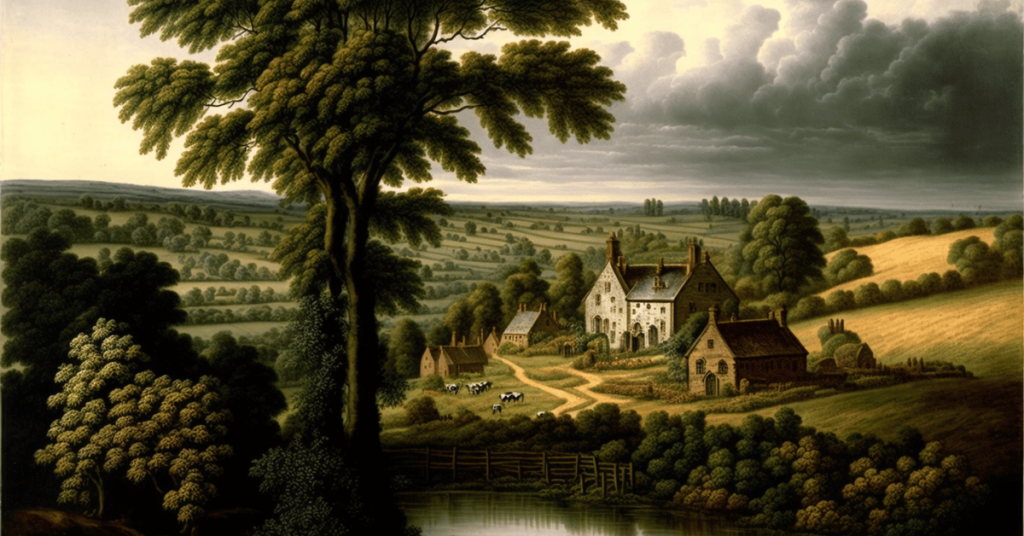
In this context, Milton’s “Areopagitica” can be seen as a reflection on the political and social climate of the time, and as a response to the censorship and repression that was taking place under the government of the time. The book serves as a powerful plea for freedom of speech and the right to publish and read books without government interference, in an environment where censorship and repression were becoming increasingly common.
The Content of “Areopagitica”
Main arguments and themes by Milton in his banned book
“Areopagitica” is a powerful and eloquent defense of freedom of expression and the right to freely publish and read books. The book is a critique of the Licensing Order of 1643, which required all books to be approved by government officials before they could be published.
Milton argues that censorship is not only ineffective in achieving its goals but also harmful to society as it stifles free speech and thought. He contends that truth will ultimately prevail, and that it is not the role of the government to decide what people should be allowed to read or publish. He also argues that the best way to counter bad ideas is through the free exchange of ideas, and that censorship only serves to make bad ideas more appealing.
Milton also addresses the role of books and literature in society, and how they play a crucial role in shaping people’s thoughts and beliefs. He argues that books are an important part of education and that people should be free to read and learn from them. He also emphasizes the importance of protecting freedom of the press, as it ensures that the people can hold their government accountable.
In “Areopagitica,” Milton also emphasizes the importance of self-government, the need for individuals to be able to think for themselves and make their own decisions. He argue that censorship by the government is a form of tyranny and that it is the duty of the people to resist it.
Overall, “Areopagitica” is a book that not only advocates for freedom of speech and the rights of authors, but also highlights the dangers of censorship and the importance of an open and free society. It’s a powerful and influential work that continues to be relevant today, and its message of freedom of expression and self-government are as important now as they were in the 17th century.
Analysis of how the book critiques censorship and advocates for freedom of speech
In “Areopagitica,” Milton critiques censorship and advocates for freedom of speech by making several key arguments.
First, he argues that censorship is not effective in achieving its goals. He contends that truth will ultimately prevail, and that it is not the role of the government to decide what people should be allowed to read or publish. Milton believes that bad ideas will eventually be exposed as such, and that censorship only serves to make bad ideas more appealing.
Second, Milton argues that the best way to counter bad ideas is through the free exchange of ideas. He believes that people should be free to read and learn from books, and that censorship only serves to prevent the public from being exposed to different perspectives and ideas. By preventing the free exchange of ideas, censorship stifles the ability of people to think for themselves and make their own decisions.
Third, Milton emphasizes the importance of protecting the freedom of the press. He argues that freedom of the press is essential to ensure that the people can hold their government accountable. He also argues that it’s crucial for people to be able to read and learn from books and other publications, as it helps them to become informed citizens and make informed decisions.
Milton also argues that censorship by the government is a form of tyranny and that it is the duty of the people to resist it. He emphasizes the importance of self-government, and the need for individuals to be able to think for themselves and make their own decisions.
Overall, “Areopagitica” critiques censorship by arguing that it is ineffective and harmful to society, that the best way to counter bad ideas is through the free exchange of ideas, and that freedom of the press is essential to ensure that the people can hold their government accountable. It advocates for freedom of speech by emphasizing the importance of self-government and the need for individuals to be able to think for themselves and make their own decisions.
The Banning of “Areopagitica”
Explanation of why and how the book was banned by the government
“Areopagitica” was banned by the government of the United Kingdom primarily because of its criticism of censorship and its advocacy for freedom of speech. The book was seen as a direct challenge to the Licensing Order of 1643, which required all books to be approved by government officials before they could be published. The government of the time saw the book as a threat to their authority and power, and banned it in order to prevent its ideas from spreading.

The exact methods used to ban the book are not well-documented, but it is likely that the book was seized and destroyed by government officials. Additionally, it is possible that the government used its influence to prevent booksellers and printers from selling or publishing the book.
It’s worth noting that the context in which “Areopagitica” was written was the English Civil War, which was a time of significant political and social upheaval in the United Kingdom. The country was divided between those who supported the King and those who supported the Parliament, and censorship and repression were becoming increasingly common. This context made it even more challenging to publish a book like “Areopagitica” which was seen as a challenge to the government’s authority.
The banning of “Areopagitica” by the government had a significant impact on the book’s reception and Milton’s reputation. The book was not widely read or discussed during Milton’s lifetime, and its ideas were not widely known or understood. However, it’s legacy as a powerful and influential work advocating for freedom of speech and the right to publish and read books without government interference.
Discussion of the impact the banning had on the book’s reception and Milton’s reputation
The banning of “Areopagitica” by the government had a significant impact on the book’s reception and Milton’s reputation. The book was not widely read or discussed during Milton’s lifetime, and its ideas were not widely known or understood. The fact that the book was banned by the government, and that it was not widely available, made it difficult for people to read and engage with its ideas.
As a result of the ban, Milton’s reputation as a writer was also affected. The book’s ideas were not widely known or discussed, and its author was not widely recognized as a significant literary figure. However, over time, the book’s ideas and Milton’s reputation have grown, and it’s now considered one of the most important works of literature of its time.
Despite the initial lack of attention, “Areopagitica” has since become widely recognized as a powerful and influential work advocating for freedom of speech and the right to publish and read books without government interference. The book’s message of freedom of expression and self-government continue to be relevant today, and it’s considered a classic work of literature.
It’s also worth noting that the banning of the book did not stop its ideas from spreading, as it was secretly copied and distributed among people who were interested in its message. This shows how censorship can be ineffective in preventing the spread of ideas, and how people will find ways to access banned books if they are interested in their message.
In conclusion, the banning of “Areopagitica” had a significant impact on the book’s reception and Milton’s reputation, but over time the book’s ideas and the author’s reputation have grown, and it’s now considered a classic work of literature and an important advocate for freedom of speech.
Thomas Paine and his work “Rights of Man” (published in 1791)
Thomas Paine was an influential political thinker and writer of the 18th century, best known for his pamphlets and essays advocating for the rights of the common people. Born in England in 1737, Paine spent much of his life working as a journalist, editor, and political activist. He is considered to be one of the key figures of the Enlightenment and the American Revolution.
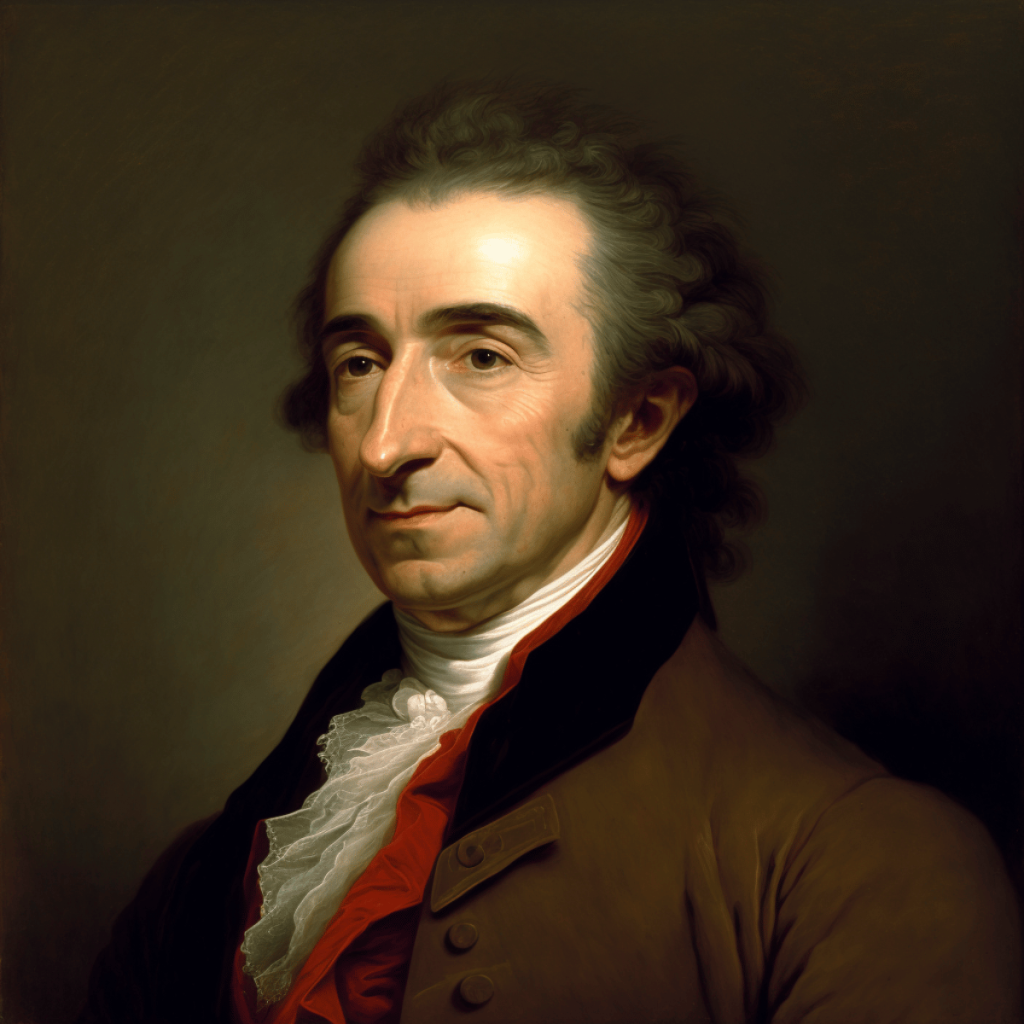
One of Paine’s most famous and influential works is “Rights of Man,” a two-part treatise published in 1791 and 1792. The book was written as a response to Edmund Burke’s “Reflections on the Revolution in France,” which had criticized the French Revolution and argued against the idea of natural rights. In contrast, Paine’s “Rights of Man” defended the French Revolution and argued for the universal rights of man, including the right to life, liberty, and property.
Paine’s “Rights of Man” was widely read and discussed at the time of its publication, and it played an important role in shaping public opinion on the French Revolution and the concept of human rights. Despite its popularity, the book was banned in the United Kingdom due to its controversial political views, which were seen as a threat to the established order.
Explanation of the ban on “Rights of Man” in the United Kingdom
The United Kingdom banned “Rights of Man” soon after its publication in 1791 and 1792. The ban was put in place by the British government, which viewed the book as a threat to the existing social and political order. The book was seen as an attack on the monarchy and the British government, as well as an incitement to revolution.
One of the reasons for the ban was Paine’s strong criticism of the British government and monarchy in the book. Paine argued that government should be based on the consent of the governed, and that the rights of man were not dependent on the permission of any government or monarch. This was seen as a direct challenge to the authority of the British government and monarchy, and as such it was considered a threat to the existing order.
The book was also banned because it was seen as a potential influence to the French Revolution, which was not well received in the United Kingdom. Paine’s defense of the French Revolution and the ideas of the Rights of Man were seen as a direct challenge to the British government’s policy of neutrality towards the French Revolution.
As a result of the ban, “Rights of Man” was not officially published in the United Kingdom until 1817, over 20 years after its original publication. Despite the ban, the book continued to be widely read and distributed in the country, often in underground or smuggled copies.
The context and content of “Rights of Man” by Thomas Paine
Paine’s background and motivations for writing the book
Thomas Paine’s background and experiences played a significant role in shaping his motivations for writing “Rights of Man.” Paine was born in England in 1737, and he spent much of his life working as a journalist, editor, and political activist. He was exposed to different ideologies and political views throughout his life, which helped him to form his own beliefs about government and the rights of man.
Paine’s early life was marked by financial struggles, and he spent much of his youth working in various manual labor jobs. This experience helped to shape his belief in the importance of equal opportunities and the rights of the working class. He also had a passion for writing and journalism, which led him to become involved in various publications and publications.
In 1774, Paine emigrated to America, where he became involved in the revolutionary movement. He was deeply moved by the events of the American Revolution, which helped to solidify his belief in the rights of man and the principles of democracy. He also became close friends with many of the key figures of the American Revolution, including Thomas Jefferson and George Washington.
Paine’s motivations for writing “Rights of Man” were primarily to defend the French Revolution and to promote the idea of universal human rights. He believed that the French Revolution represented a new era of freedom and equality for all people, and he wanted to use his writing to spread this message to the rest of the world. He also wanted to refute the ideas of Edmund Burke’s “Reflections on the Revolution in France,” which had criticized the French Revolution and argued against the idea of natural rights.
In “Rights of Man,” Paine argued that government should be based on the consent of the governed, and that the rights of man were not dependent on the permission of any government or monarch. He also believed that all individuals have the right to life, liberty, and property, and that these rights should be protected by the government.
Summary of the main arguments and ideas presented in “Rights of Man”
“Rights of Man” is a two-part treatise written by Thomas Paine in 1791 and 1792. The book presents a number of arguments and ideas that are central to Paine’s political philosophy.
One of the main arguments presented in “Rights of Man” is that government should be based on the consent of the governed. Paine argues that the legitimacy of a government should come from the agreement of the people it governs, and not from the authority of any monarch or other ruler. He also argues that government should be accountable to the people, and that any government that does not act in the best interests of the people should be removed.
Another central idea presented in “Rights of Man” is the concept of universal human rights. Paine argues that all individuals have the right to life, liberty, and property, and that these rights should be protected by the government. He also argues that these rights are not dependent on the permission of any government or monarch, but are inherent to every human being by nature. Paine also advocates for equal rights for all, regardless of their background, race, religion or gender
The book also presents a critique of the existing social and economic system, arguing that it is unjust and favors the rich over the poor. Paine calls for the introduction of progressive taxation and the establishment of a welfare state to ensure that everyone has access to the necessities of life.
Paine also argues that the principle of representation must be based on the idea of the equal representation of the people, regardless of their social status or wealth, and that the voting franchise should be extended to all adult male citizens.
In summary, “Rights of Man” presents a strong defense of the principles of democracy, human rights and equality, and a critique of the existing social and economic system. Paine’s arguments and ideas in the book had a significant influence on the political thought of the time and continue to be relevant today.
The political and social climate in which the book was published
The ban on “Rights of Man” in the United Kingdom had significant legal and political repercussions. Paine himself was charged with seditious libel, which carried the potential penalty of life imprisonment. He was forced to flee the country to avoid prosecution, and he eventually sought refuge in France.
The ban on the book also had a chilling effect on freedom of speech and freedom of the press in the United Kingdom. The government’s action in banning “Rights of Man” was seen as an attempt to suppress dissenting views and stifle public debate on important political issues. This led to a climate of fear and censorship, and many writers and publishers were hesitant to publish or distribute material that might be seen as critical of the government.
The ban also led to the formation of various societies and groups who sought to challenge the ban and to promote the ideas of “Rights of Man.” These groups, composed of reformers, intellectuals, and working-class activists, played a significant role in promoting the ideas of democracy and human rights.
The ban also had an impact on the broader political climate of the time. The government’s action in banning “Rights of Man” was seen as an attempt to suppress dissenting views and stifle public debate on important political issues. This led to a growing sense of discontent among the population, and contributed to the growing calls for political reform and the expansion of democracy in the United Kingdom.
In conclusion, the ban on “Rights of Man” had significant legal, political and social repercussions. It had a chilling effect on freedom of speech and freedom of the press, and also led to a growing sense of discontent among the population, which contributed to the growing calls for political reform and the expansion of democracy in the United Kingdom.
The reaction to “Rights of Man”
The public’s response to the book
The public’s response to “Rights of Man” was mixed upon its initial publication in 1791 and 1792. The book was widely read and discussed, and it played an important role in shaping public opinion on the French Revolution and the concept of human rights.
Many people were deeply moved by Paine’s arguments in “Rights of Man,” and they saw the book as a powerful defense of democracy, human rights, and equality. Paine’s clear and simple writing style made the book accessible to a wide audience, and it became popular among both the educated elite and the working classes.
The book was also well received in America, where it was seen as an important document of the revolutionary spirit and ideals of the American Revolution. It was also translated into several languages and distributed throughout Europe, where it had a significant impact on political thought and public opinion.
However, the book was not without its critics. The British government and many members of the conservative establishment saw “Rights of Man” as a direct attack on the existing social and political order, and they viewed the book as a dangerous incitement to revolution. They also criticized Paine’s ideas on the rights of man, democracy and the role of government as radical and unrealistic.
Additionally, some religious groups found Paine’s ideas on the natural rights of man to be in conflict with their religious beliefs and teachings.
In conclusion, the public’s response to “Rights of Man” was mixed. The book was widely read and discussed and had a significant impact on political thought, especially among the working class and the American colonies. However, it also faced criticism from the conservative establishment, religious groups and government, which led to its ban in the United Kingdom.
Explanation of the reasons for the ban on the book in the United Kingdom
The United Kingdom banned “Rights of Man” soon after its publication in 1791 and 1792. The ban was put in place by the British government, which viewed the book as a threat to the existing social and political order. The book was seen as an attack on the monarchy and the British government, as well as an incitement to revolution.
One of the reasons for the ban was Paine’s strong criticism of the British government and monarchy in the book. Paine argued that government should be based on the consent of the governed, and that the rights of man were not dependent on the permission of any government or monarch. This was seen as a direct challenge to the authority of the British government and monarchy, and as such it was considered a threat to the existing order.
The book was also banned because it was seen as a potential influence to the French Revolution, which was not well received in the United Kingdom. Paine’s defense of the French Revolution and the ideas of the Rights of Man were seen as a direct challenge to the British government’s policy of neutrality towards the French Revolution.
Furthermore, the British government feared that the ideas in “Rights of Man” would inspire similar revolutions in other countries, including the United Kingdom. Paine’s call for political reform and the expansion of democracy was seen as a direct threat to the existing social and political order, and the government feared that it would lead to widespread social upheaval.
In summary, the reasons for the ban on “Rights of Man” in the United Kingdom were primarily political. The book was seen as a direct challenge to the authority of the British government and monarchy, and as an incitement to revolution. Additionally, the British government feared that the ideas in the book would inspire similar revolutions in other countries, and that it would lead to widespread social upheaval.
Legal and political repercussions of the ban
The ban on “Rights of Man” in the United Kingdom had significant legal and political repercussions. Paine himself was charged with seditious libel, which carried the potential penalty of life imprisonment. He was forced to flee the country to avoid prosecution, and he eventually sought refuge in France.
The ban on the book also had a chilling effect on freedom of speech and freedom of the press in the United Kingdom. The government’s action in banning “Rights of Man” was seen as an attempt to suppress dissenting views and stifle public debate on important political issues. This led to a climate of fear and censorship, and many writers and publishers were hesitant to publish or distribute material that might be seen as critical of the government.
The ban also led to the formation of various societies and groups who sought to challenge the ban and to promote the ideas of “Rights of Man.” These groups, composed of reformers, intellectuals, and working-class activists, played a significant role in promoting the ideas of democracy and human rights.
The ban also had an impact on the broader political climate of the time. The government’s action in banning “Rights of Man” was seen as an attempt to suppress dissenting views and stifle public debate on important political issues. This led to a growing sense of discontent among the population, and contributed to the growing calls for political reform and the expansion of democracy in the United Kingdom.
In conclusion, the ban on “Rights of Man” had significant legal, political and social repercussions. It had a chilling effect on freedom of speech and freedom of the press, and also led to a growing sense of discontent among the population, which contributed to the growing calls for political reform and the expansion of democracy in the United Kingdom.
The legacy of “Rights of Man”
Examination of the lasting impact of the book on political thought and human rights
“Rights of Man” had a significant and lasting impact on political thought and human rights. The book’s defense of democracy, human rights, and equality was influential in shaping the political and social climate of the late 18th and early 19th centuries.
Paine’s arguments in “Rights of Man” helped to popularize the idea of universal human rights, which had previously been seen as a radical and controversial concept. The book’s call for government to be based on the consent of the governed and for the protection of the rights of man, was a major influence on the development of democratic thought and the expansion of democracy in the 19th century.
The book also played an important role in shaping the political and social climate of the time, particularly in the United States and France. In America, “Rights of Man” was seen as an important document of the revolutionary spirit and ideals of the American Revolution, and it helped to solidify the principles of democracy and human rights in the new nation. In France, the book was widely read and discussed, and it played a significant role in shaping public opinion on the French Revolution and the concept of human rights.
The book’s influence can also be seen in the political and social movements that emerged in the 19th century, such as the abolition of slavery, women’s suffrage and the labor movement. Paine’s ideas on equality and the rights of man were central to these movements, and they helped to shape the political discourse of the time.
Furthermore, “Rights of Man” continues to be relevant today, as many of the issues and challenges that Paine addressed in his work still exists in contemporary society. His ideas on democracy, human rights and equality, continue to inspire political and social movements around the world.
In conclusion, “Rights of Man” had a significant and lasting impact on political thought and human rights. Paine’s ideas and arguments continue to shape political discourse and inspire social movements to this day.
Conclusion
In this part of the article, we have examined the background, content, and legacy of Thomas Paine’s “Rights of Man,” a political treatise that was banned in the United Kingdom soon after its publication in 1791 and 1792. The book presents a defense of democracy, human rights, and equality, and a critique of the existing social and economic system.
We have discussed Paine’s background and motivations for writing the book, as well as the main arguments and ideas presented in it. We have also looked at the public’s response to the book, both positive and negative, and the reasons for the ban on the book in the United Kingdom.
We have also examined the legal and political repercussions of the ban, including the charge of seditious libel against Paine, and the chilling effect on freedom of speech and freedom of the press. Additionally, we have explored the lasting impact of the book on political thought and human rights, both in the past and in contemporary society.
In conclusion, “Rights of Man” had a significant and lasting impact on political thought and human rights. The book was influential in shaping the political and social climate of the late 18th and early 19th centuries, and it continues to be relevant today. Paine’s ideas and arguments continue to shape political discourse and inspire social movements to this day. The ban on the book, however, had significant legal, political and social repercussions, and it serves as a reminder of the importance of protecting freedom of speech and freedom of the press.
